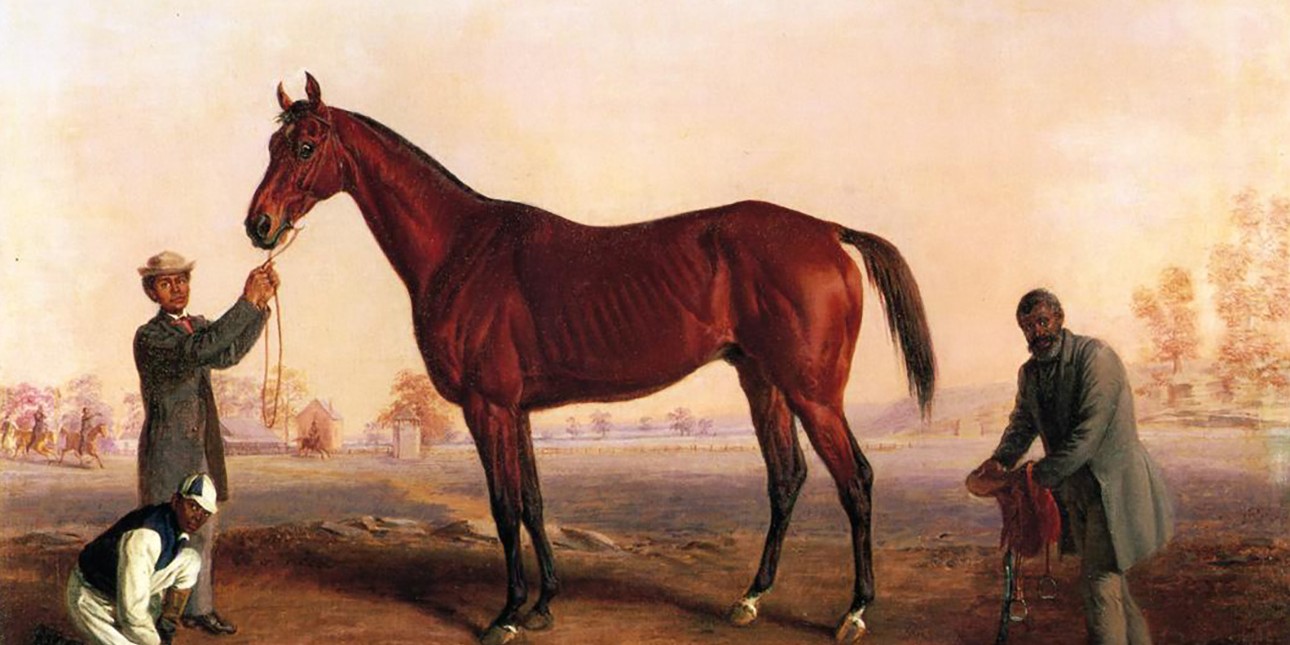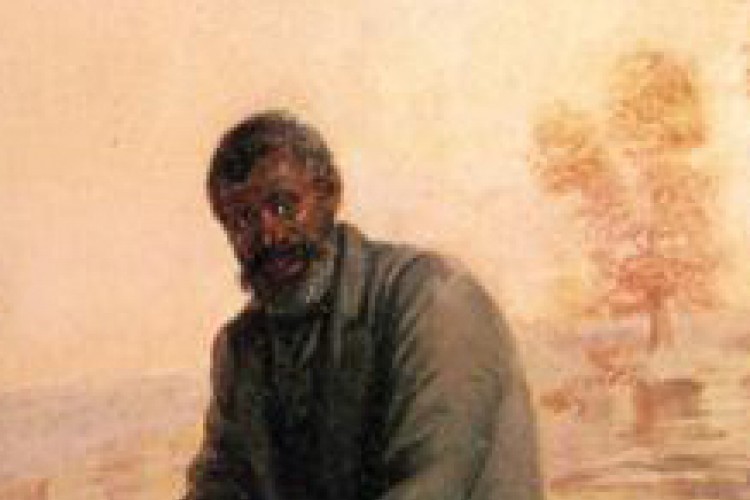Notable Partnerships: Winning Teams Despite Discrimination

Famous Athletes
Researchers and mainstream media have been rediscovering the stories of early African American jockeys since the turn of the twenty-first century. Names like Isaac Murphy, Oliver Lewis and Jimmy Winkfield pop up in various retrospective news stories. Books, plays and memorial gardens are dedicated to these historic athletes. Yet, it may come as a surprise to many that the first millionaire athletes in America were formerly enslaved and their immediate descendants.1
Supportive Partnerships
In the late 1800s, it was not simply a handful of top riders who achieved status. Partnerships that these athletes created with other African American horsemen enabled their success. They linked up in their quest to gain access, support their community and win.
Winning Teams
African American trainer-jockey combo Raleigh Colston, Sr. and Edward Dudley Brown won the 1870 Belmont Stakes with the famous American Thoroughbred, Kingfisher. Both Colston and Brown had been born as enslaved persons in central Kentucky.
Brown became a notable trainer and won the 1877 Kentucky Derby, alongside African American jockey William Walker, aboard Baden-Baden. Another African American trainer-jockey combo Ansel Williamson and Oliver Lewis, aboard Aristides, won the first Kentucky Derby in 1875. Williamson was also enslaved. He and Brown have both been inducted into the National Museum of Racing Hall of Fame for their accomplished careers.
African American Stable Owners
These trainer-jockey references seem to suggest a glass ceiling for African American horsemen in which the owners were wealthy white men. However, Brown owned and developed Kentucky Derby and Kentucky Oaks winners including:
- Plaudit
- Ben Brush
- Monrovia
- Etta
Etta's win in the 1900 edition of the Kentucky Oaks is notable not only with her owner and trainer, but also with the African American jockey Monk Overton.
Jacobin Stable
Dudley Allen, formerly enslaved, partnered with Kinzea Stone to form Jacobin Stable. Jacobin is a possible nod to the Haitian revolutionary leader, Black Jacobin Toussaint L'Ouverture.2 L'Ouverture, who fought for the independence of Haiti from France, could have been a symbol of pride and possibility for the enslaved.
Under the Jacobin name, Allen employed notable African American jockeys to ride in his colors, wine, yellow and blue. These included:
- Isaac Murphy
- Oliver Lewis
- Joseph Johnson
The stable name hid the fact that an African American owner was a man with power. Descendants of Allen's business partner Kinzea Stone noted that "the Jacobin Stable alias was used to conceal the names of the partners, because Allen was a Negro and such business arrangements were frowned on."3
Jacobin Stable stood as a statement of racial pride and celebration of freedom while also a camouflage to protect them.
Big Wins
The earliest reference to Jacobin Stable comes from a Louisville Courier-Journal article in 1887. The author recounts a seventh place finish at the Louisville Jockey Club track. Allen was part owner and primary trainer for the team.
They owned many horses racing on tracks across the Midwest, from Chicago's Washington Park to Nashville's West Side Park. The stable's most notable success came with Allen's purchase of the Tennessee Thoroughbred Kingman. In 1891, Kingman won four major races:
- Latonia Derby
- American Derby
- Phoenix Stakes
- Kentucky Derby
Even though they raced under a pseudonym, the African American owner, trainer, and jockey teams at the turn of the twentieth century were winning races with some of America's top horses, all while cementing their names in Racing's Hall of Fame.
Sources
Berri, David. n.d. “The Disappearance Of The African-American Jockey.” Forbes. Accessed January 5, 2020. https://www.forbes.com/sites/davidberri/2018/06/11/the-disappearance-of-the-african-american-jockey/.
McDaniels, Pellom. 2013. The Prince of Jockeys: The Life of Isaac Burns Murphy. Lexington,
Kentucky: University Press of Kentucky.
Renau, Lynn S. 1995. Jockeys, Belles and Bluegrass Kings. Louisville, Ky,: Herr House Press.
Citation
When citing this article as a source in Chicago Manual of Style use this format: Last name, first name of Author. Chronicle of African Americans in the Horse Industry. n.d. “Title of Profile or Story.” International Museum of the Horse. Accessed date. URL of page cited.




